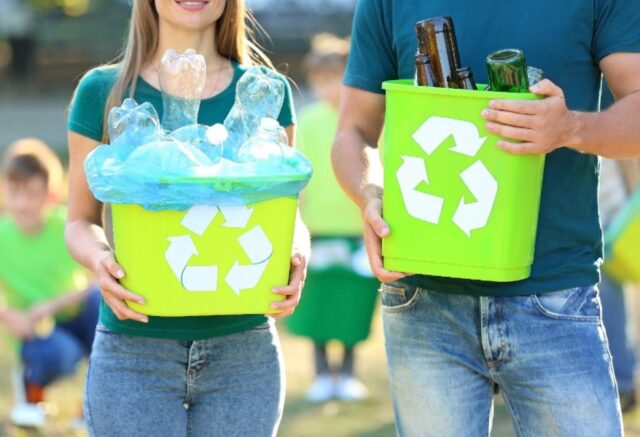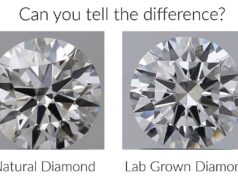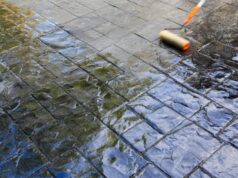You probably know that recycling is important. We are constantly confronted with statistics about how much post-consumer waste ends up in landfill, and the effects this has on the environment.
As well as the issue of what to do with rubbish once it fulfills its purpose, there’s also the environmental factor around the production of plastics, packaging and other single-use items.
Let’s take a quick look at how recycling helps the environment, and some other things we can do to be mindful around disposal of our rubbish and waste.
Environmental benefits of recycling
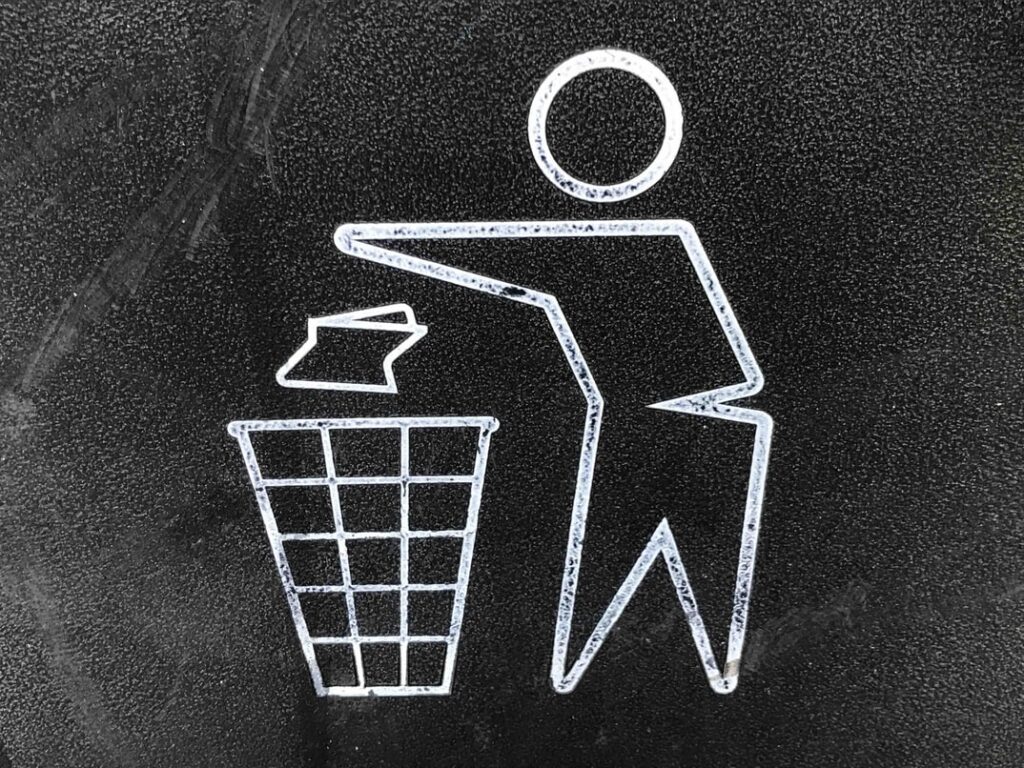
Put very simply, the act of recycling reduces the amount of waste going to landfill. This is positive in many different ways – there’s a reduction of harmful chemicals and toxins leaking from landfills into the local ecosystem, for one thing.
Recycling also allows post-consumer waste to go on and have another life, meaningless raw materials have to be extracted to make items from scratch. This lowers emissions of greenhouse gasses. Natural resources such as timber, water, and minerals are conserved with lower demand for raw materials.
How to recycle as much as you can at home
Though it may feel overwhelming to contemplate just how much recyclable waste ends up in landfill, there are some very simple steps you can take at home to reduce your environmental footprint and ensure you are recycling as much as possible.
Yellow recycling bin
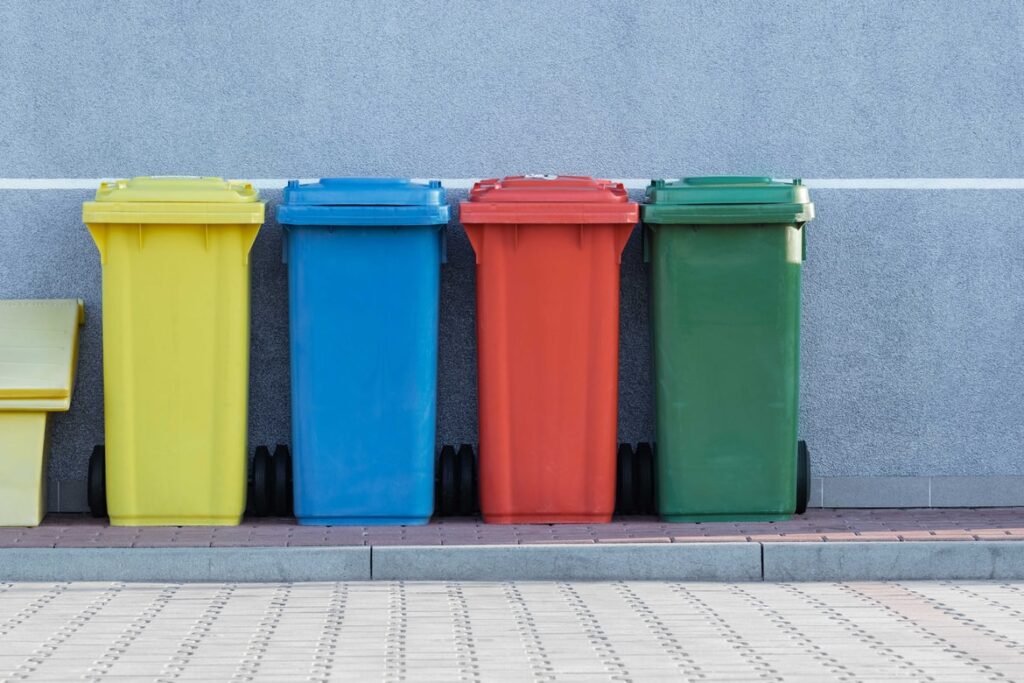
Your local council likely empties your yellow lidded recycling bin weekly or fortnightly. You should aim to utilize this service as much as possible – but be mindful. Just one incorrect or contaminated item in the load can lead to the whole collection being sent to landfill. Make sure you know the ins and outs of your recycling bin so that you are using it properly.
Can go in your yellow bin:
- Cardboard such as egg cartons, milk cartons, cereal boxes
- Glass such as wine bottles and sauce jars
- Aluminum such as soft drink cans
- Rigid plastics such as plastic milk bottles or yoghurt containers
- Paper such as newspapers, magazines and office paper
Ensure all lids have been removed, and every item is clean and dry before placing it in your yellow bin.
Can’t go in your yellow bin:
- Soft plastics such as plastic bags
- Aerosols
- Coffee cups
- Greasy pizza boxes
- General household waste
- REDcycle program
This program is a great initiative that is reducing the volume of soft plastics ending up in landfill all across Australia. Bundle up your soft plastics (e.g. plastic bags, snack wrappers, bread bags) and drop them in a collection bin at your local Coles or Woolworths store.
Many items of soft packaging now have the REDcycle logo on the back, letting you know they are accepted. REDcycle are doing amazing things to send post-consumer waste on to have a new life.
Reduce, Reuse, Recycle
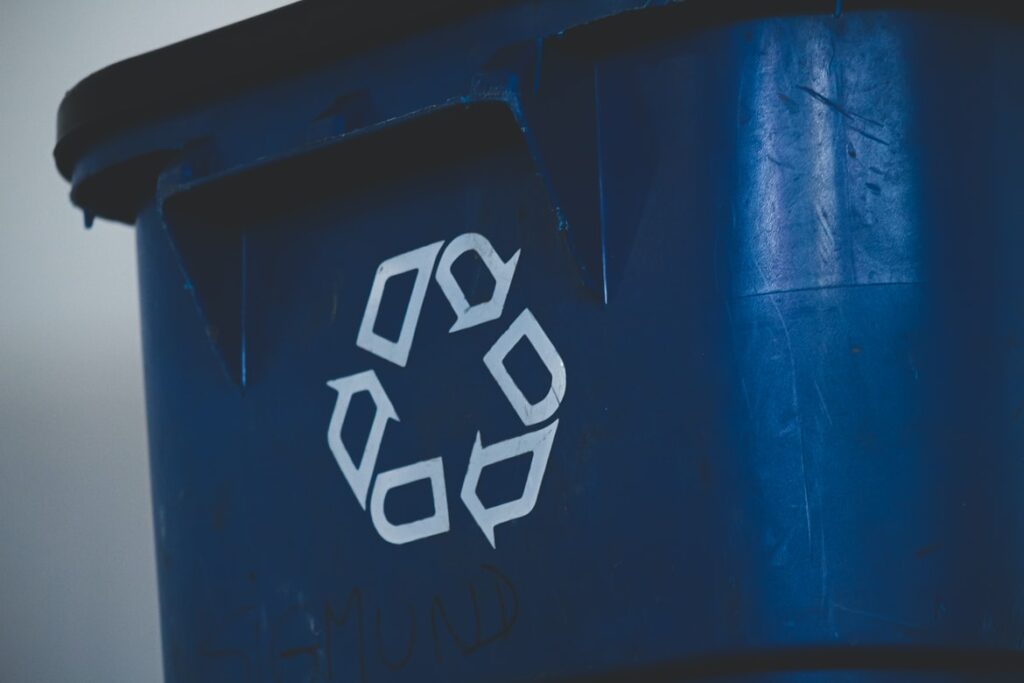
While recycling is a vital part of minimizing our environmental footprint, it’s not the full solution. Remember – reduce, reuse, recycle. As consumers, we need to focus on reducing our waste, reusing what we can, and then recycling what is left. We should all be aiming to eliminate how much waste we accumulate before we get to the recycling stage.
Reduce
Minimize the use of single-use items as much as possible. Take a reusable coffee cup with you for your morning caffeine hit, and make sure you always have a metal straw and reusable cutlery in your bag for when lunchtime comes around. Take reusable shopping bags with you to the supermarket, or if you forget, load the shopping directly from your trolley into the boot of the car.
Consider making swaps around the house for reusable solutions, such as cloth nappies instead of disposable, or reusable cloths instead of single-use paper towels. Once you start making the swap to reusable it becomes very easy, and you’ll find they’re preferable to disposable items.
Reuse
One man’s trash is another man’s treasure. If you have no use for something anymore, find someone that will. Donate unwanted clothing and household items to charity shops, or do a clothing swap with your friends. If an item breaks, try to fix it before throwing it out and replacing it.
Check with your local kindergarten or daycare centres who are always on the lookout for resources to use for arts and crafts. They’d probably be overjoyed to take all those empty egg cartons, glass jars, and cereal boxes off your hands so they can make something special.
Other mindful waste disposal
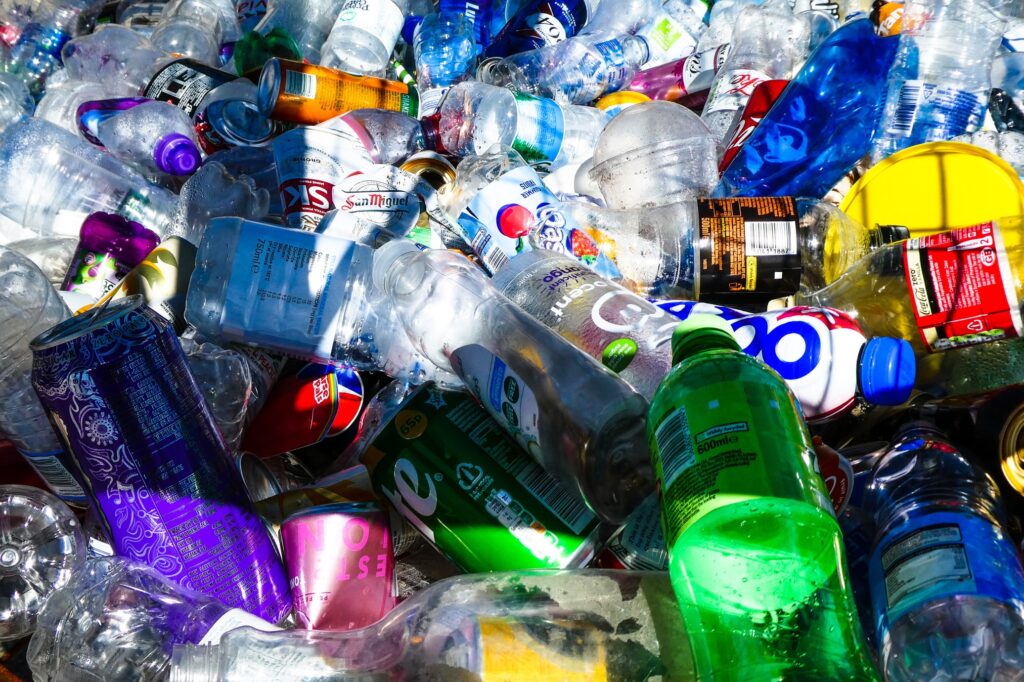
Mindful disposal of waste goes beyond recycling. There are many items that aren’t recycled in your local council bins, or that perhaps can’t go on to have another life through a charity shop. We all need to be more conscious about how we throw things away – there is no such thing as ‘away’, afterall – it all needs to go somewhere.
When it comes to the disposal of household or industrial waste beyond the scope of your local council bins, you should consider teaming up with a waste disposal company that openly shares their company values around mindful waste disposal.
Hiring a skip bin or organising a bulk rubbish collection through a third party is a convenient way of clearing out unneeded waste, but you should do your research on the company first. Make sure you know what their policy is around recycling, and how they dispose of the items that can’t be recycled.
If you’re looking for a skip bins company, ask the questions around their waste disposal ethos before booking in. Reducing waste, reusing what we can, and recycling what can be recycled – these are all simple, easy steps we can all take to help out this planet that we call home.

